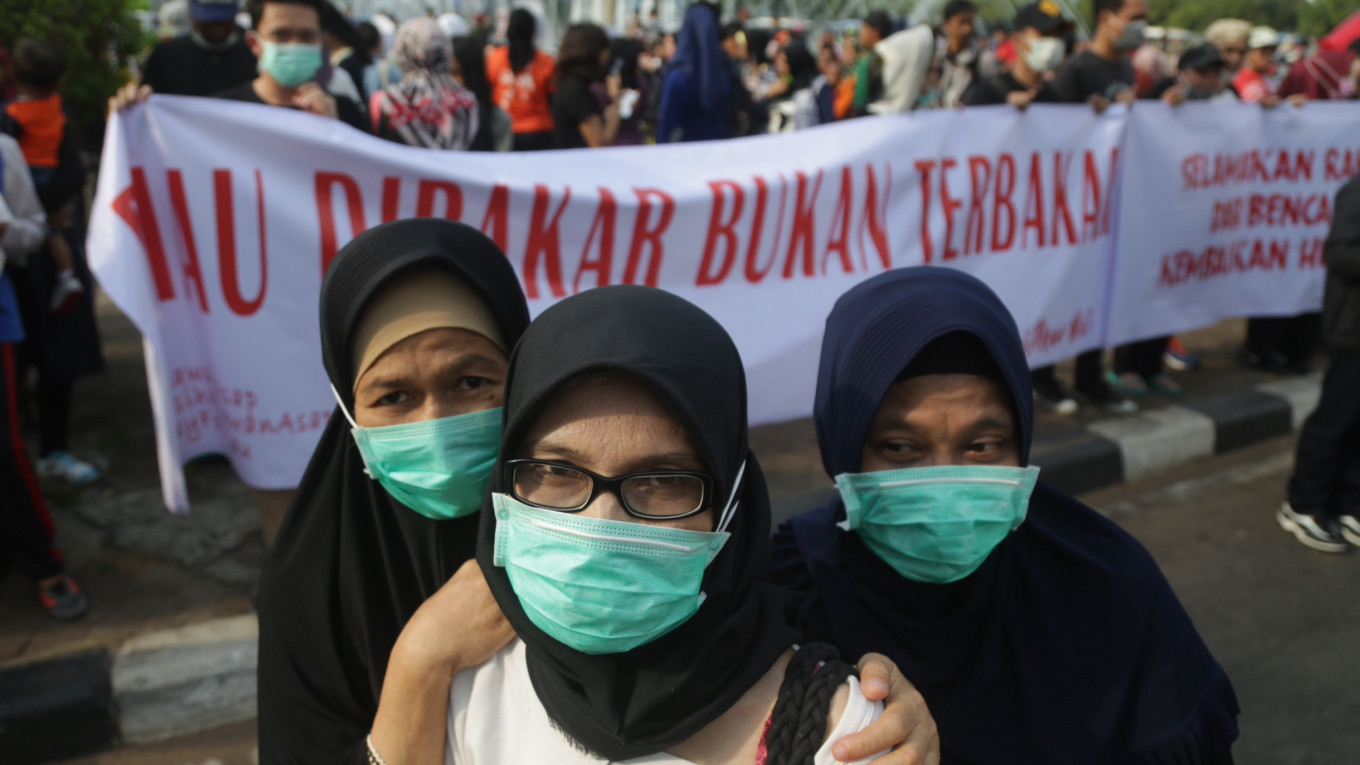Popular Reads
Top Results
Can't find what you're looking for?
View all search resultsPopular Reads
Top Results
Can't find what you're looking for?
View all search results2020 HDR: Indonesia retains 'high' HDI, but slips 16 ranks in new planetary pressures index
While the 2020 Human Development Report ranks Indonesia among high human development countries for a second consecutive year, the country has "medium" ranking according to the newly introduced planetary pressures-adjusted Human Development Index (PHDI), which measures the "excessive human pressures on the planet" and its impact on human development.
Change text size
Gift Premium Articles
to Anyone
D
espite rising to rank among countries with high human development in the 2019 Human Development Report (HDR) of the United Nations Development Programme (UNDP), Indonesia’s sluggish approach to environmental protection has significantly impacted its achievements, the 2020 HDR shows.
Launched globally at 5:30 p.m. GMT on Dec. 15 (12:30 a.m. on Dec. 16 in Jakarta), the UNDP report reveals that Indonesia attained a Human Development Index (HDI) of 0.718 in 2019, a slight increase from its HDI of 0.707 the previous year.
This places it in the high human development category for the second year in a row, with Indonesia sharing its 107th ranking out of 189 countries and territories with Bolivia and the Philippines. It also represents an HDI increase of 37.3 percent since the first Human Development Report in 1990.
The 2020 report also shows that life expectancy in Indonesia has increased to 71.7 years from 71.5 years and the expected years of schooling to 13.6 years from 13.5 years since the 2019 report.
“We are pleased to note that Indonesia has continued to make steady improvement in the UNDP’s HDI. Bold national actions on the Sustainable Development Goals [SDGs] and well-targeted policies in Indonesia are starting to reap dividends. This is encouraging news as Indonesia copes with the repercussions of the COVID-19 pandemic,” said UNDP Indonesia resident representative Norimasa Shimomura.
Read also: Indonesia breaks into UNDP's high human development category
In line with this year’s theme “the Anthropocene”, or the Age of Humans, the 2020 HDR for the first time introduces a planetary pressures-adjusted HDI, or PHDI, in its annex. The PHDI adjusts a country’s HDI value according to “carbon dioxide emissions and material footprint per capita to account for excessive human pressures on the planet”, the report says in a footnote.
The new measurement is intended as a lens for countries to “redesign their paths to progress by fully accounting for the dangerous pressure humans put on the planet and dismantle the gross imbalances of power and opportunity that prevent change”, the UNDP said in a press release on the 2020 HDR.
Indonesia’s PHDI value is 0.691, down 3.8 percent from its original HDI value of 0.718 and 16 ranks lower than its HDI rank of 107, or a PHDI rank of 123. While the country’s PHDI value is above the global average of 0.683, the difference from its HDI value is among the largest in East Asia and the Pacific.
The 2020 HDR also shows that more than 50 countries dropped out of the “very high” human development category based on the new PHDI measurement.
“As this report shows, no country in the world has yet achieved very high human development without putting immense strain on the planet. But we could be the first generation to right this wrong. That is the next frontier for human development,” said UNDP administrator Achim Steiner.
UNDP Indonesia country economist Rima Prama Artha said the downgrade on incorporating environmental variables proved that Indonesia’s environment had been unable to effectively support human development. Conversely, some of the country’s human development projects had driven environmental damage.
“The HDI adjustment is very contextual, as we are now facing climate change and the pandemic when socioeconomic imbalances are widening. Hopefully, this can be a sign for our human development transformation to get on track with environmental concerns,” she said.
Alin Halimatussadiah, who heads the University of Indonesia Institute for Economic and Social Research (LPEM FEB-UI), said many studies showed that environmental degradation in Indonesia was directly or indirectly tied to the country’s human development and economy.
Annual environmental disasters such as forest and peatland fires had been scientifically proven to lead to cognitive disorders in children, while flooding increased the prevalence of stunting, said Alin. In the long term, these childhood conditions could lead to a decline in labor productivity and in turn, negatively affect economic performance.
She commended the UNDP for its new measurement, which provided a wider understanding of welfare from the perspective of not only economic growth and human resource quality, but also the environment.
Climate change adaptation director Sri Tantri Arundhati of the Environment and Forestry Ministry said that the newly introduced PHDI would provide good input for Indonesia to take a more mature approach to SDGs planning.
“During the pandemic, a big and specific challenge for the ministry has been to prevent people from damaging the environment to improve their own welfare. However, because of Indonesia’s vast area, we still have difficulty reaching certain regions,” she said.
Sri Tantri said the ministry had initiated various cross-sector programs for improving both community welfare and the environment, which included labor-intensive and mangrove planting initiatives under the National Economic Recovery (PEN) program.
For the longer term, she added, the government had prioritized environmental development and environmental resilience to climate change and disasters in the 2020-2024 National Medium-Term Development Plan (RPJMN) while it continued to improve climate change literacy among the public.










